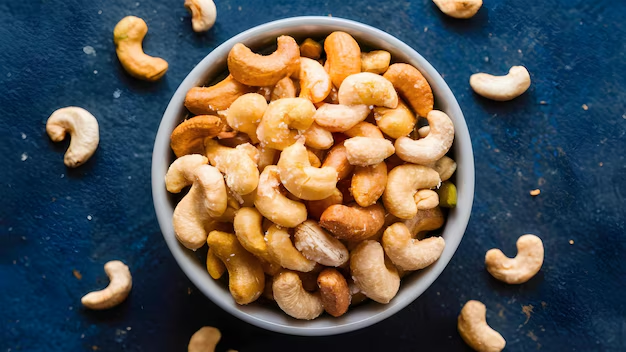priceless-stories.org – Cashew nuts are a popular type of nut, prized for their distinctive kidney shape and creamy, slightly sweet flavor. They are a versatile ingredient, used in a wide range of dishes, from sweet desserts to savory sauces.
The Cashew Tree
Cashew trees are native to tropical regions of Central and South America. The cashew nut grows at the end of a cashew apple, a fleshy fruit that is often used to make juice or jelly.
Nutritional Benefits
Cashew nuts are packed with essential nutrients, including:
- Healthy Fats: Cashews are a good source of monounsaturated and polyunsaturated fats, which are beneficial for heart health.
- Protein: Cashews provide a decent amount of protein, making them a great plant-based protein source.
- Minerals: They are rich in minerals like magnesium, phosphorus, and copper.
- Vitamins: Cashews contain vitamins such as vitamin K and B vitamins.
Culinary Uses
Cashews are used in a wide variety of cuisines around the world. Here are some popular ways to use cashews:
- Snacking: Cashew nuts are a popular snack, often roasted and salted.
- Baking: They are used in various baked goods, such as cookies, cakes, and brownies.
- Sauces and Dips: Cashews are often blended into creamy sauces and dips, like cashew butter and cashew cream.
- Asian Cuisine: Cashews are a common ingredient in many Asian dishes, such as stir-fries and curries.
- Vegan and Vegetarian Cuisine: Cashews are a popular plant-based alternative to dairy products, used to make vegan cheese and milk.
The Environmental Impact of Cashew Production
It’s important to note that the cashew industry has faced criticism for its environmental and social impacts, particularly in terms of labor practices and deforestation. However, sustainable cashew production is becoming increasingly important, with many companies focusing on fair trade and eco-friendly practices.
